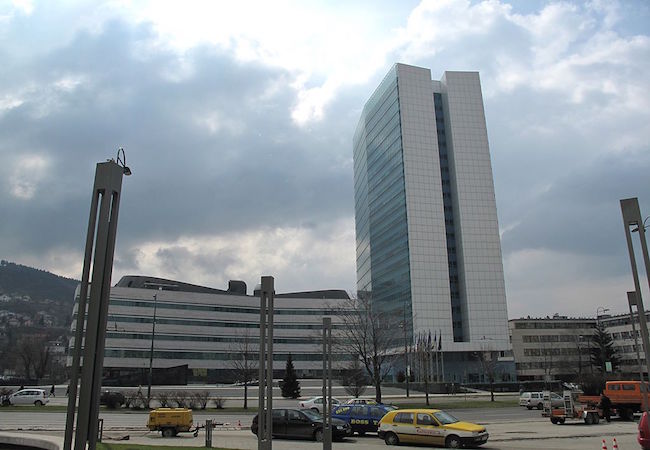Bosnia Federation entity coalition falls apart

By Srecko Latal
The collapse of the fragile governing coalition in the Bosnian Federation on Thursday leaves the entity in a political logam – and poses a questionmark over the future of the state government.
The Democratic Front, DF, has quit the ruling coalition in the Federation of Bosnia and Herzegovina, after the government – against the votes of DF ministers – changed the rules on the appointments of new managers for public companies.
The break-up of the ruling coalition has been dragging on for months, marked by personal rows, conflicting statements and short-lived compromises.
But the stumbling point was a dispute over the appointment of managerial structures for public companies, as well as over the regulation that placed ministers in charge of appointments in public companies in fields under their responsibility.
The two main coalition partners – the [Bosniak] Party of Democratic Action, SDA and the Croatian Democratic Union, HDZ – insisted on changing the regulation so that the entire government decides on appointments to all companies.
But the DF said managerial changes should be made only to problematic companies. SDA and HDZ officials complained that although the DF had the least ministers, under the old regulation it controlled the most lucrative one of all – the Ministry of Energy, Industry and Mining.
The crisis culminated on Thursday at a session at which SDA and HDZ ministers outvoted the DF ones and changed the disputed regulation.
Speaking after the session, Federation Prime Minister Fadil Novalic said the DF had tried to create a perception that they were fighting to remove political controls over public companies.
“In fact, what was behind it was a brutal struggle for control over these companies,” Novalic said.
The DF retaliated quickly and on Thursday afternoon announced that it was withdrawing from the coalition.
“As of today, there is no longer a majority in parliament in the Federation,” DF president Zeljko Komsic told the media.
He said the four DF ministers would remain in their posts in the government to keep the government functional, but urged the SDA and HDZ to restructure the government and replace the DF ministers soon.
Komsic also accused the SDA of negotiating with other potential new coalition partners behind the DF’s back.
“This is the end of the partnership of these three parties,” the HDZ leader Dragan Covic said in Mostar on Thursday.
“The Federation government has been in crisis since the beginning. The government was not functioning from the time it was appointed. We keep trying to frame each other and agreements are not respected,” he added.
The breakup of the coalition brings great unknowns and the potential for more chaos on the already complicated national political scene.
The SDA, HDZ and DF are also in governing coalitions in several cantons in the Federation as well as at state level, where they are joined by the bloc of Bosnian Serb opposition parties.
Komsic indicated that the DF’s withdrawal referred only to the BiH Federation, but the HDZ leader Covic has said in the past that a breakup of this coalition would mean a breakup on all levels.
It is unclear whether Covic still holds that position, but, if he does, it would effectively force the restructuring of governments across the spectrum. This could easily result in early elections.
Whether restructuring of all governments will occur or not, the collapse of the coalition in the Federation will further stall the decision-making process in the entity.
The situation is little better in Bosnia’s other entity, the Serbian-dominated Republika Srpska, where the government is also blocked due to the weakening of the ruling coalition.
The deepening of Bosnia’s political crisis comes at a bad time as the country has to meet tight deadlines to adopt EU-sponsored reforms in order to obtain a new arrangement with the IMF by the end of the year. Without this, Bosnia will be facing a liquidity crisis by this October.




